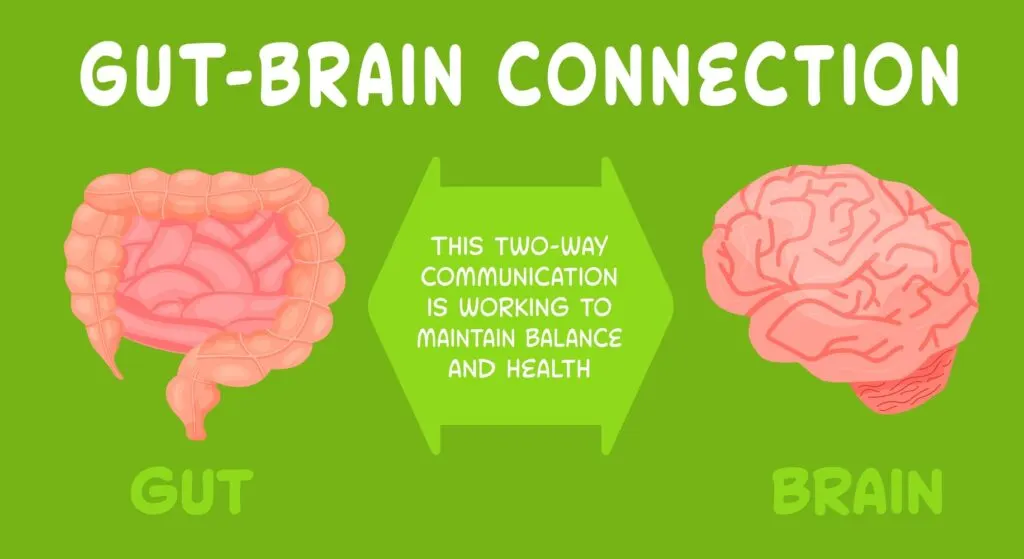More evidence has linked the gut microbiome to autism spectrum disorder (ASD).
Both lab tests and clinical trials have shown that the gut microbiome of people with autism spectrum disorder (ASD) is different. The gut microbiota and its metabolites can change over time.
That’s because of the food we eat and communicate with the host in both directions.
As an example of the gut-brain connection, the production of metabolites and neurotransmitters affects the CNS. The vagus nerve stimulates this production, which then affects the immune system.
This article summarizes the relationships between the several GI variables studies associated with ASD pathophysiology in humans and animals that a colonoscopy procedure can examine.
You’ll also learn about possible biomarkers research efforts use to find more connections and ways to treat ASD.

What Is Autism Spectrum Disorder?
Autism spectrum disorder (ASD) makes it hard for people to interact with others, communicate, learn, and act appropriately.
Experts consider autism a developmental condition because its symptoms usually appear in the child’s developmental stages. In some cases, it can be diagnosed at any age.
People with ASD often show the following symptoms:
- Problems expressing oneself and forming relationships
- Limitations in interests and routine actions
People with autism exhibit some variation of these symptoms. As such, experts have referred to the condition as a spectrum.
ASD affects people from every walk of life. Treatment and support services can help people with ASD, even though the disorder can last a lifetime.
The Link Between The Digestive System And Cerebral Cortex
Roughly 23,000 genes make up an entire human being. But we host 300 trillion bacteria in the microbiome that express 100 times as many genes as the human species.
The human DNA and the microbiome work together to form an individual.
The core of the microbiome is in the digestive tract, which is also a crucial part of the immune system. This suggests that things in the digestive tract may set off immune responses that affect the body
Cancer, TB, and autism are some diseases and disorders scientists look at in how gut bacteria and the immune system work.
Studies have found a link between stress response and stomach problems, which shows that mental processes have physical effects.
Autism And The Brain
Autism is associated with a higher prevalence of gastrointestinal issues in children. In addition, several studies point to abnormal microbiome compositions in autistic children.
However, experts have found no definitive microbial signature beyond some general consistency.
Since correlational studies cannot establish causality, whether dysbiosis causes or is caused by autism still has no concrete answer.
Scientists have thought that the microbiome might be a cause or a factor in autism because there’s more evidence from studies on animals that bacteria can change the brain.
Understanding Autism through Microbes
The idea says that changes to the microbiome can make the intestines more permeable. This permeability makes it easier for bacterial metabolites to enter the bloodstream.
This causes systemic low-grade chronic inflammation, which in turn has neurological consequences. But how viable is this hypothesis?
In the 1990s, a subset of autistic children whose behavior improved after being treated with antibiotics brought attention to a possible link between gut flora and autism.
Due to their ability to kill bacteria, this may indicate that microbes are involved in the most obvious signs of autism.
According to a study conducted in 2000, 8 out of 10 autistic children who took vancomycin for a week or less showed transitory improvements in speech and sociability.
The results made a few experts believe microbiota might be an excellent way to learn more about autism.

Animal Studies to Understand Autism
In a separate study, the microbiome profiles of mice with autism-like behaviors (like repetitive grooming, a preference for the familiar, and trouble getting along with others) were found to be different from those of regular mice.
Disease risk and mental health are both affected by the gut-brain connection. Germs from mice with autism-like symptoms were given to germ-free mice, which also got the disorder.
In 2019, one study garnered a lot of attention. Its authors said that when they gave germ-free mice microorganisms from autistic children, the mice started acting like autistic children.
But the behavior of mice that had microorganisms from people who were not autistic did not change in this way.
They concluded their results “clearly support[ed] a role for microbiota [growth] in autistic behaviors,” which is what the researchers said.
So far, it is unknown if the social problems seen in mouse models of autism are caused by differences in how their brains develop or by problems with their stomachs.
The Real Score
Examining the link between the digestive system and the brain has gained ground in the past decade or two.
Since the brain is responsible for sending messages throughout the body, it stands to reason that mental processes can have physiological consequences.
Still, a person’s mental state may be impacted by what’s happening in their digestive system.
Researchers are still trying to pinpoint what role the gut-brain axis plays in autistic people.